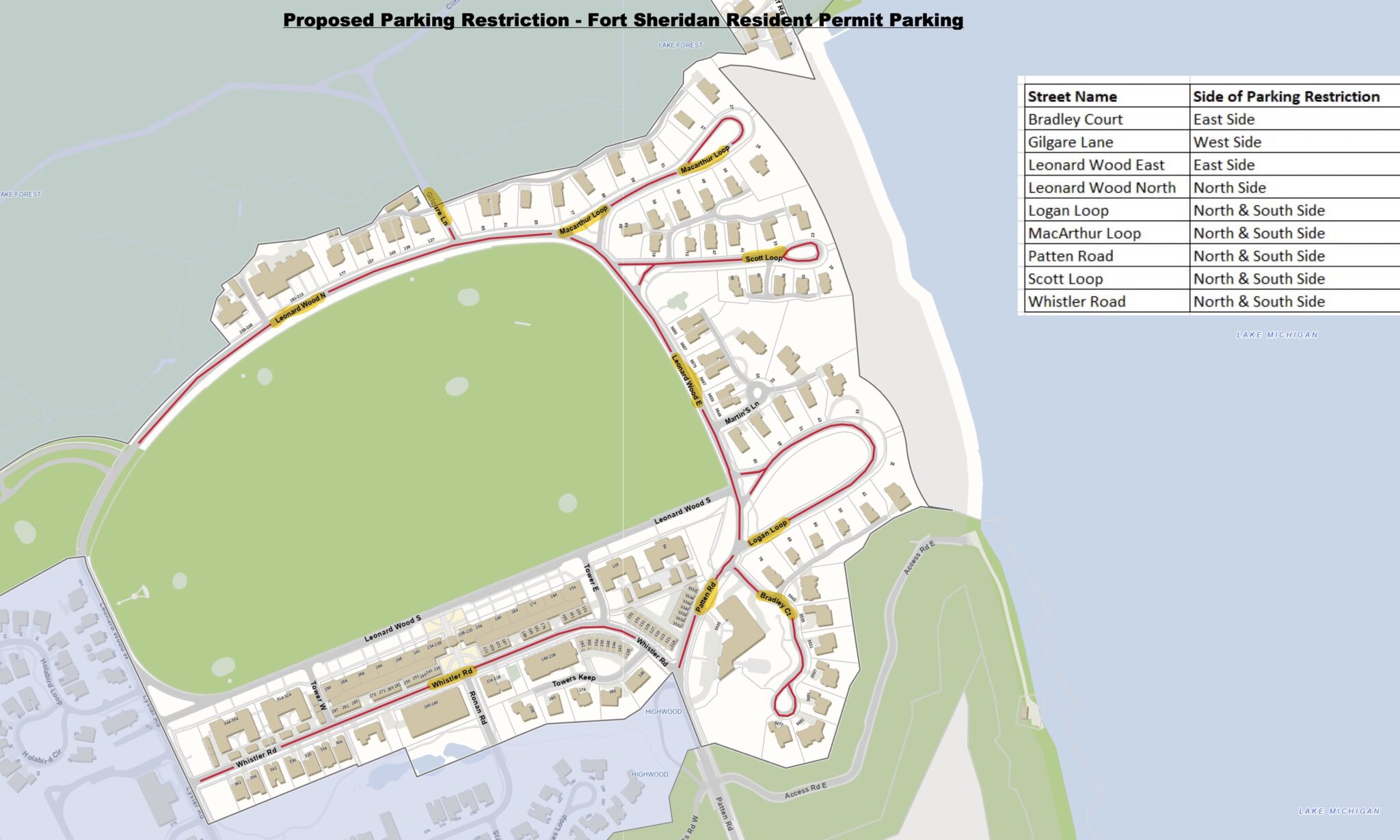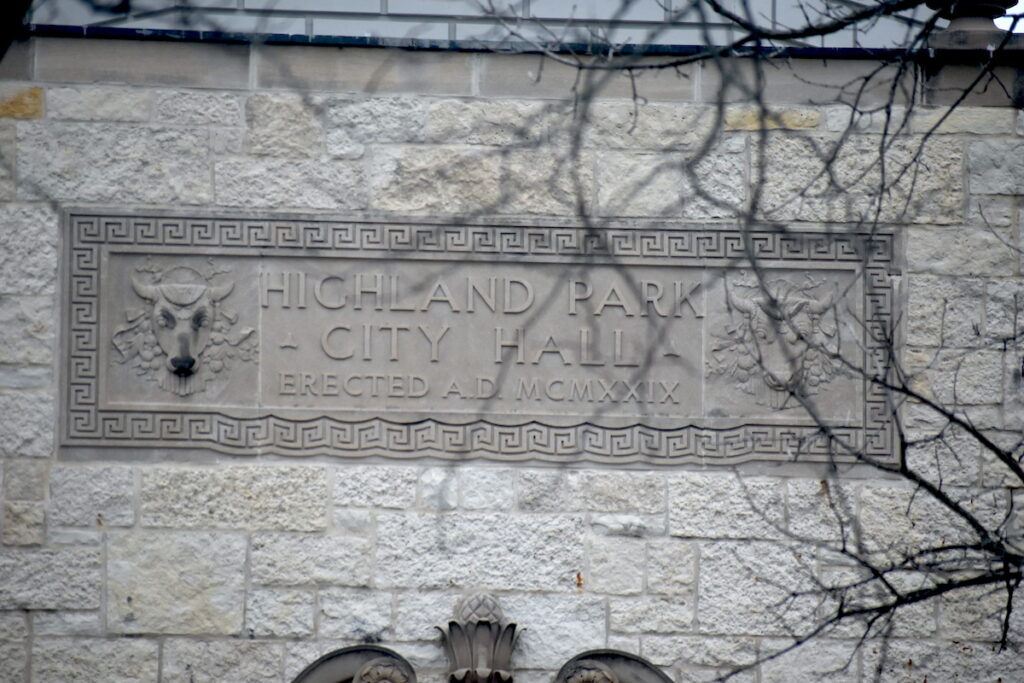
6-month nonresident parking ban coming to Fort Sheridan
The parking pleas of Fort Sheridan neighbors have been heard by the Highland Park City Council.
Councilmembers passed an ordinance on Monday, Oct. 23, to restrict parking in a portion of the Fort Sheridan residential neighborhood for the six-month period between April 1 and Oct. 31.
The measure started with a request for a full nonresident parking ban from a resident and homeowners association in the area. They cited parking congestion and disruptive incidents in the area, which is on the north end of Highland Park, east of Sheridan Road and borders well-visited Fort Sheridan Forest Preserve and Beach and Openlands Lakeshore Beach.
The parking ban consists of streets on the north end of the neighborhood, closest to the public land.
Of 150 surveyed residents of the neighborhood, 120 supported a parking ban and many cited incidents and nuisances the overflow of traffic causes in their neighborhood, according to the agenda packet.
The City Council first discussed the issue in September but tabled the item to collect more data. According to the packet, the City counted 5,000 cars entering and exiting Fort Sheridan, a neighborhood of about 500 properties, over 29 days between September and October.
City officials also spoke with the Forest Preserve district and the cities of Lake Forest and Highwood about improving signage toward public parking in the area.
Kristyn Scherer, the resident who made the initial request and lead volunteer of the Fort Sheridan Residential Permit Parking Initiative, said that in the neighborhood residents have found garbage and disturbing items, from alcohol bottles and cigarette butts to dirty diapers, dog waste and needles.
“We just don’t believe our residential streets should be used as overflow parking when there is ample public parking across Sheridan Road by the forest preserve trailhead just across the street,” Scherer said. “It is unfair to us as taxpayers to make our residential street a litter-strewn parking lot that negatively impacts our quality of life.”
Another resident commented that she has seen nonresidents in residential yards, including a man urinating in her neighbor’s lawn. She emphasized that the neighborhood does not want parking restrictions to be exclusionary but rather as a precautionary measure.
The ordinance passed unanimously among council members. Councilmember Jeff Hoobler supported the plan with some caveats.
“As I said in September, I think we need a comprehensive plan. I think we’re 50, 60 percent of the way there, I don’t think we’re there,” Hoobler said. “I’m in favor of a parking ban, I think it needs to happen, but I think this plan is not quite there and there’s going to be some unforeseen consequences, such as some of the streets where we’re going to allow parking are going to be inundated and I just don’t see how that’s going work.”
He suggested implementing directions and signs for drop-off locations or shuttle buses as a way to transport people.
Mayor Nancy Rotering thanked the public for bringing the issue to the council’s attention and encouraged them to keep the council updated.
“I think we need to be consistent to be fair to the public,” she said. “If in a year people go ‘this is way too onerous, bring back all the strangers and traffic to my front yard’ then we can remove the signs, but I think we need to do something to give these neighbors some relief.”
Councilmember Tony Blumberg urged the council to set up a review of the efficacy of the new parking plan in a year and schedule a date to address its handicap and accessibility issues.
New carwash to replace Lake Carwash at Elm and First
The council also unanimously approved a special use permit for the new carwash at 1970 First St., the former home of the closed Lake Car Wash at the northwest corner of First and Elm Place.
According to City documents, the new business, Waterway Carwash, will renovate and reuse the existing building, add payment kiosks and outdoor vacuums, and make other improvements.
The item came to the council with the Plan and Design Commission’s positive recommendation (4-2).
Councilmember Kim Stone approved of the permit with the several conditions that the council agreed upon. These include eliminating the conditions regarding the prohibition on sales and people exiting their cars, moving the bike station to the Highland Park metra station or another station along the bike trail as determined by staff, changing the existing spotlight to a downlight, and requiring the three lights that stay on to be the ones on the building.

Rosie Newmark
Rosie Newmark is a 2023 Record intern and an incoming senior studying journalism and history at Northwestern University. Rosie has written for multiple campus publications in addition to the Hyde Park Herald and American Libraries Magazine.


